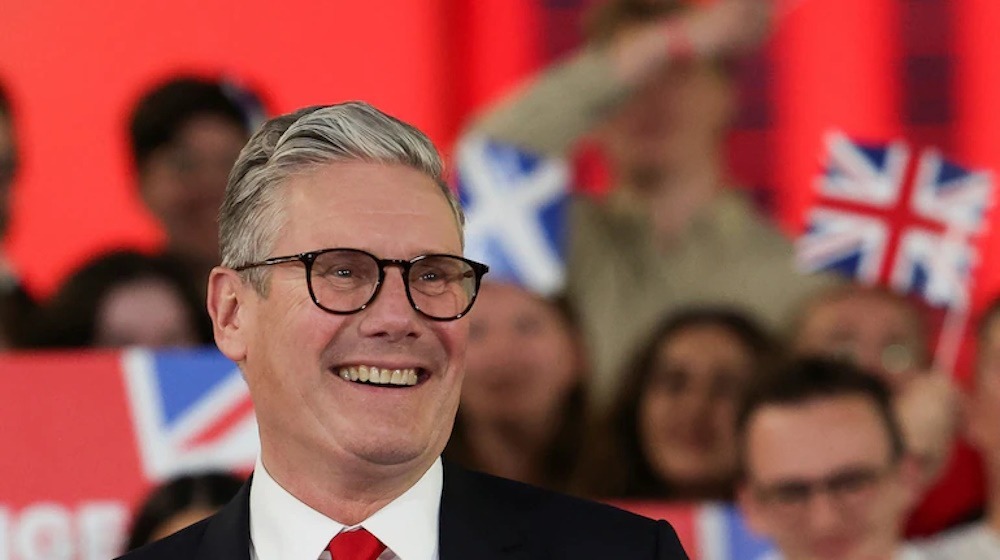Would Britain’s Starmer moderate when in power?

Will Starmer adopt a more moderate approach if he comes into power in Britain? Financial markets that prioritize stability find solace in Europe’s turbulent political landscape, as candidates tend to adopt more moderate positions once in power. Britain under the leadership of Prime Minister Keir Starmer may prove to be a unique case. On Friday, the general election results revealed that Starmer’s Labour Party had secured over 400 seats in the British Parliament, marking a significant victory that brought an end to 14 years of Conservative Party rule.
The outcome was highly expected, yet the FTSE 250 index of midsize, primarily domestic stocks surged by over 1% during the initial trading session. This election showcases a rather unique aspect: Several individuals in the City of London had been openly supporting the center-left Labour party. Corporate elites and the average voter both sought to hold the party in power accountable.
After the 2016 Brexit referendum, the Conservatives failed to provide the stability they claim to represent. Following a prolonged and unsettling process of exiting the European Union, which ultimately resulted in accepting terms that had been available a year ago, a series of scandals led to the swift downfall of several ministers.
Introducing Starmer, a former prosecutor who successfully removed supporters of his predecessor, the leftist firebrand Jeremy Corbyn. Starmer’s policy platform has consistently focused on maintaining a balanced approach, prioritizing adherence to the U.K.’s independent fiscal watchdog, the Office for Budget Responsibility. Additionally, his proposals for tax increases primarily target specific sectors like private schools. He has promised to put an end to austerity policies that hinder economic growth and improve the healthcare system, but he decided to postpone the implementation of a £28 billion green-investment initiative, which is equivalent to $36 billion.
In other parts of Europe, voters have shown their support for candidates who have taken more daring stances. The far right is on the verge of gaining control of France’s parliament, marking a significant shift in the country’s political landscape. It currently holds power in Italy with Prime Minister Giorgia Meloni at the helm. Her trajectory highlights how radical political positions often become more moderate once they are faced with the practicalities of governing. Investors in France are anticipating that parliamentary gridlock will prevent any alterations to the current state of affairs.
However, in the U.K., it is possible that the leader’s moderation could diminish once they assume office. In this election, amidst another Conservative Party scandal and the lingering memory of a 2022 bond-market seizure, the winning strategy was to adopt a vague agenda. As expected, protest votes played a significant role in determining the outcome, with the pro-business Liberal Democrats and anti-immigration Reform UK party also achieving notable success.
However, these victories are quite delicate. The economic growth of the U.K. has been lackluster and it is unlikely to experience a significant boost independently. If Starmer wants to secure another victory in five years, he must establish a clear and compelling vision. With a “supermajority” at his disposal, he has the flexibility to lean towards more progressive policies. Given the state of public finances, it appears that he may not have many alternatives.
According to the latest OBR projections, the Conservatives’ plans would have maintained a higher level of public spending compared to pre-pandemic times. This is due to an increase in the welfare budget and higher interest rates. The projected debt-servicing costs are expected to stay above 3% of output for the foreseeable future, which is a significant increase from 1.7% five years ago. Meeting a self-imposed rule of reducing the national debt as a percentage of the economy, which Starmer has also agreed to, would necessitate implementing the most significant level of taxation since 1948 and imposing challenging cuts to certain departments.
According to the Institute for Fiscal Studies, the numbers simply do not align. Despite the fact that the burden on average earners is lower than it was in 2010, Labour has ruled out tapping the biggest sources of revenue, such as income taxes. Britain manages to generate more government revenue from specialized sectors compared to other countries, even though its overall tax rates are lower.
It’s possible that the well might not be completely dry: Starmer has the potential to increase taxes on capital gains and property. On the other hand, he could explore strategies to bypass the fiscal regulations and increase borrowing, potentially boosting economic growth. Britain experienced a bond-market meltdown in 2022 due to factors such as high inflation and pension-fund issues. However, it is unlikely that this event will occur again, as efforts are being made to address these concerns.
One important question to consider is whether the new prime minister’s reputation as a competent yet unexciting centrist will allow him to change direction while still maintaining the support of the markets. This shift would necessitate him presenting a compelling argument that the funds will be allocated towards investments that enhance productivity. Alternatively, his cautious campaign may penalize him for exceeding the boundaries set by Labour’s manifesto.
Regardless of the circumstances, it would be unwise for investors to make assumptions about their understanding of the true nature of Keir Starmer.









